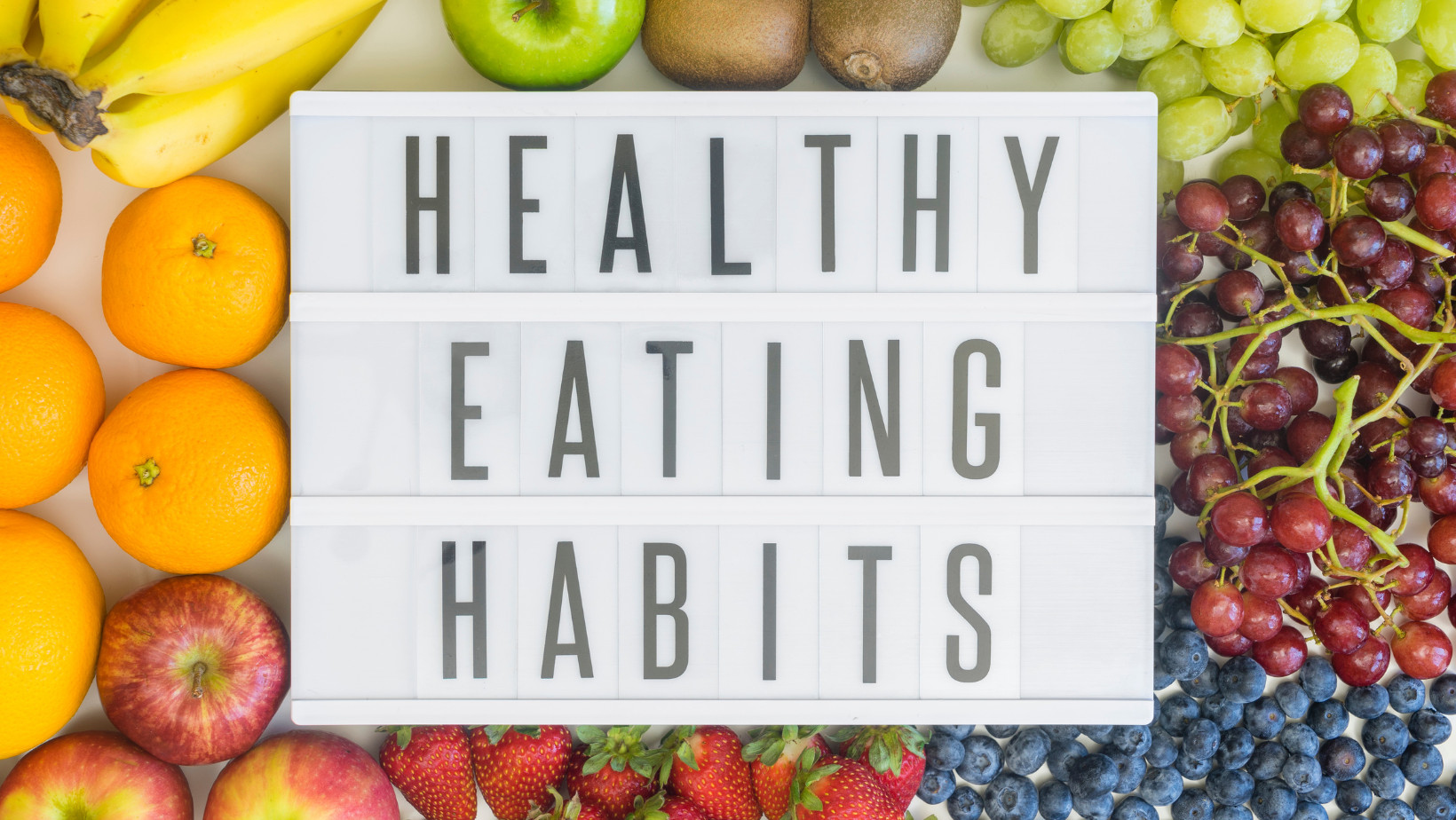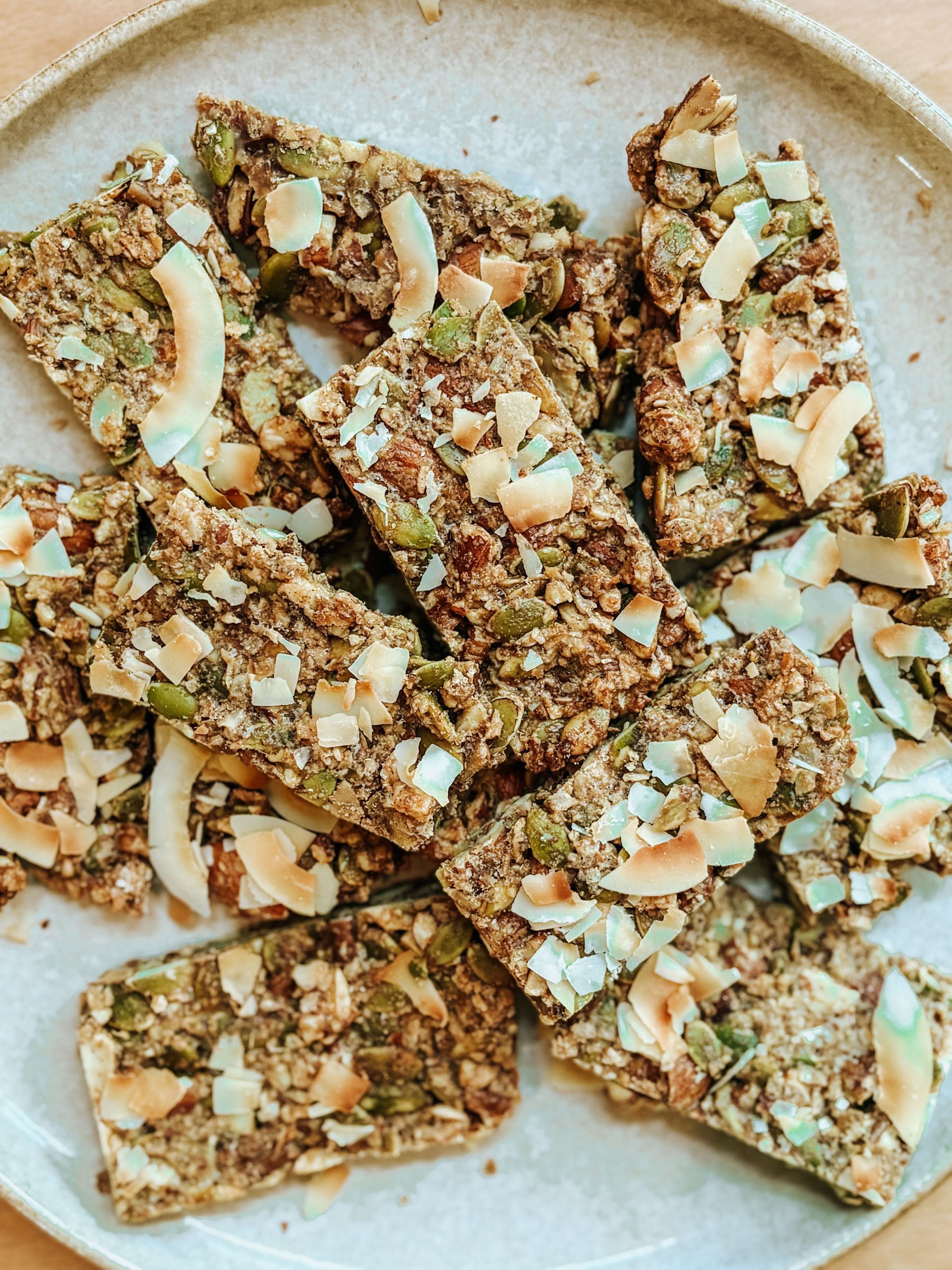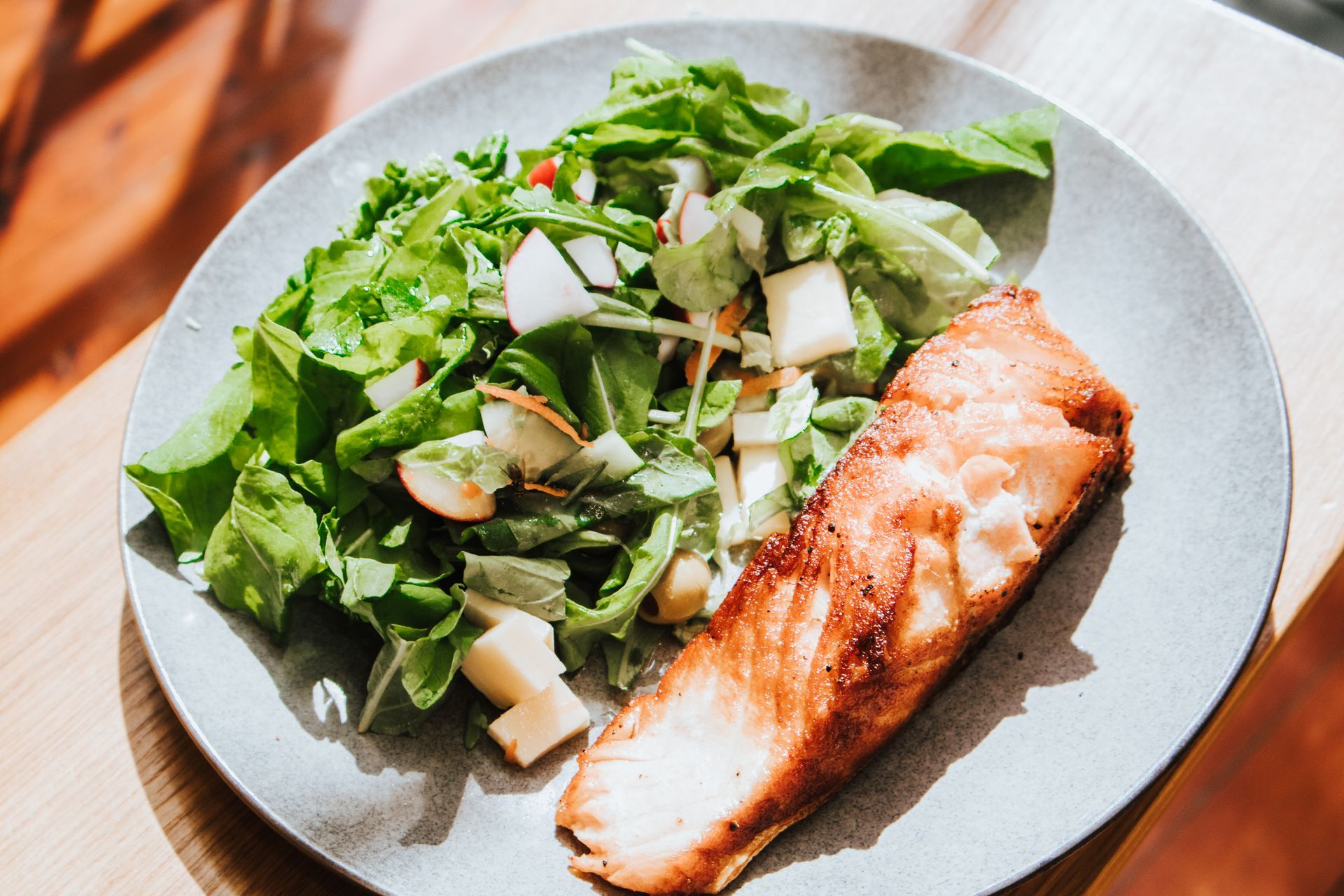Blog Layout
5 Easy Steps to Improve Your Diet: Simple Tips to Start Eating Healthier Today.
Kate Pearce • April 10, 2023
Transform Your Eating Habits with these Quick and Easy Steps.

Are you looking to start eating healthier but don't know where to begin? Making changes to your diet can be overwhelming, but it doesn't have to be complicated. In this blog post, we're sharing five simple steps that you can take to start eating healthier today. These tips are easy to implement and don't require any drastic changes to your current eating habits. By following these steps, you can improve your overall health and feel great about the food choices you're making. So, let's get started!
1. Swap Out Processed Foods for Whole Foods
Swapping out processed foods for whole foods, even just some of them, can be a great way to improve your diet and overall health. Processed foods often contain high levels of added sugars, unhealthy salt (not all salt is the same) and unhealthy fats, which can contribute to a range of health issues.
In contrast, whole foods like fruits, vegetables, healthy fats like avocados and lean proteins are rich in essential nutrients, including vitamins, minerals, and fibre. These nutrients can help support a healthy immune system, improve your digestion and boost your energy.
Making the switch to whole foods can also help you feel more satisfied after meals. Whole foods tend to be more filling and provide sustained energy levels throughout the day, which can help reduce cravings for unhealthy snacks.
There are many ways to incorporate whole foods into your diet. For example, you could swap out processed snacks like chips and lollies for whole fruit, or replace a supermarket dip with a simple home-made guacamole. You could also try experimenting with new recipes that incorporate more whole foods, like adding a variety of colourful vegetables to your favourite pasta dish or swapping out processed meats for good quality grass-fed, hormone free meats from your local butcher.
By making the switch to whole foods, you can improve your diet and overall health while still enjoying delicious and satisfying meals.
2. Cut Back on Added Sugars
Cutting back on added sugars is a very important step towards a healthier diet. Added sugars are found in many foods, including sugary drinks, baked goods, yoghurts and processed foods, and they provide little nutritional value while contributing to a range of health problems.
Eating too much added sugar can lead to obesity, type 2 diabetes, high blood pressure, and heart disease. Consuming excessive amounts of sugar can also cause blood sugar levels to spike and crash, leading to feelings of fatigue and cravings for more sugar.
Tips;
To cut back on added sugars, it's important to read food labels carefully and choose foods that are low in added sugars. For example, instead of drinking drinking sugary soft drinks (watch out for diet drinks also) or sports drinks, try opting for water, herbal tea, or soda water. You can also add a little fresh lime, lemon or berries for flavour. When baking at home, try substituting sugar with natural sweeteners like honey or maple syrup.
Another effective way to reduce added sugar intake is to limit processed foods, which are often high in added sugars. Choose whole foods like fruits, vegetables, healthy fats like nuts and lean proteins instead, which provide essential nutrients without the added sugar.
It's important to remember that cutting back on added sugars doesn't mean you have to give up all sweet treats completely. Instead, try indulging in smaller portions or finding healthier alternatives like dark chocolate or fruit-based dessert, swapping your flavoured yoghurt with natural yoghurt and adding some berries or sweetening cakes and muffins with bananas.
By cutting back on added sugars, you will feel a huge difference in your mood and energy levels. Although you feel like you are getting energy from sugary foods you are actually only getting a hit of dopamine. In reality you are impacting your energy levels as your body tries to compensate for the rise in your blood sugar level. Ultimately, you will improve your overall health and reduce the risk of chronic diseases while still enjoying delicious and satisfying foods.
3. Add More Colour to Your Plate
Adding more colour to your plate is a simple and effective way to improve your diet and overall health. Fruits and vegetables of different colours contain a wide range of essential vitamins, minerals, and fibre, which are all important for maintaining a healthy body.
For example, red fruits and vegetables like tomatoes and bell peppers are high in antioxidants like lycopene, which can help protect against certain types of cancer and improve your heart health. Orange and yellow fruits and vegetables like sweet potatoes and oranges are rich in beta-carotene, which is important for healthy vision and immune function. Green leafy vegetables like spinach and kale are packed with nutrients like vitamin K, which is important for bone health.
Incorporating a variety of colorful fruits and vegetables into your diet can also help prevent nutrient deficiencies and promote healthy digestion. It's important to choose a variety of produce to ensure you're getting a range of nutrients.
Tips;
Some easy ways to add more color to your plate include adding berries to your breakfast, snacking on raw veggies like carrots and bell peppers, and incorporating leafy greens into your meals. You can also experiment with new recipes that feature a variety of colourful produce, like stir-fries or veggie soups.
By adding more colour to your plate, you can improve the health of your entire body and feel great doing it.
4. Make Smart Substitutions
Making smart substitutions are very helpful and important strategies for improving your diet and maintaining a healthy weight.
Tips;
Swapping out sugary store bought dressings with added preservatives for home-made vinaigrettes is a simple substitution that can significantly reduce the calorie content of your meals. You can make a healthy vinaigrette made with heart-healthy oils like olive oil, apple cider vinegar and crushed garlic, which provide essential nutrients and healthy fats. Other smart substitutions include choosing lean cuts of meat or plant-based proteins like beans and lentils over processed meats.
Replacing white rice with brown rice is another smart substitution that can provide more nutrients and fibre. Brown rice is less processed than white rice, and contains the whole grain, providing more nutrients, vitamins, and minerals. Additionally, brown rice has a lower glycemic index, which means it can help regulate blood sugar levels.
By making smart substitutions you can easily improve the quality of your diet and maintain a healthy weight. These simple strategies can be incorporated into your daily routine and help you make positive, sustainable changes for a healthier lifestyle.
5. Be Mindful of Portion Sizes
In addition to making smart substitutions, being mindful of your portion sizes is an important way to control calorie intake and maintain a healthy weight.
Tips;
Using smaller plates, measuring out portion sizes, and taking the time to eat slowly and mindfully can all help reduce overeating. Another great tip is ensuring to eat the fibre (veggie / salad) portion of your plate first. This will help to coat your stomach, keep your fuller for longer and steady your blood sugar level so that you can maintain your weight and feel your best.
It's important to remember that portion sizes can vary depending on individual needs, activity levels, and overall health goals. Consulting with a Registered Nutritionist can help determine appropriate portion sizes for your individual needs.
Let's get started!
Incorporating these simple tips into your daily routine can help you start eating healthier and feeling better. Remember, small changes can add up to big improvements in your overall health and well-being.
By swapping out processed foods for whole foods, cutting back on added sugars, adding more color to your plate, making smart substitutions, and being mindful of portion sizes, you can improve the quality of your diet and promote a healthier lifestyle.
So, start small and build from there. Don't be too hard on yourself if you slip up - it's all about progress, not perfection. With time and consistency, these healthy habits will become a natural part of your daily routine.
Here's to a healthier, happier you!
Categories
Blood Glucose
Weight Loss
Energy
Motivation
Success
Let’s talk!
Would you love some more information? Please get in touch, we are always happy to help.

By Kate Pearce
•
June 10, 2024
Discover the power of personalised nutrition with a leading Townsville Nutritionist! Dive into our latest blog post for a detoxifying breakfast recipe designed to revitalise your mornings and support your body's natural detox process. Learn how simple dietary adjustments can make a significant impact on your overall health. Book your free 20-minute consultation with our expert Townsville nutritionist today to start your journey towards a healthier, happier you!










